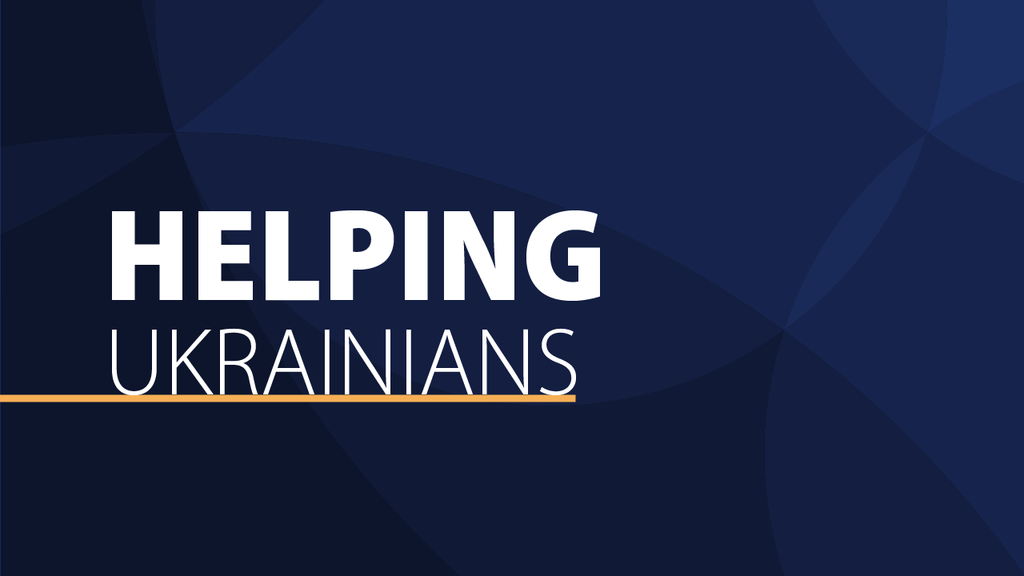Municipalities receive compensation for services provided to Ukrainians

On assignment by the Government, the Finnish Immigration Service has prepared a procedure where persons in temporary protection are granted the reception services they need without municipalities establishing a reception centre. Municipalities will receive compensation from the central government for providing the agreed services.
Several municipalities and private individuals in Finland have already provided accommodation to Ukrainians who have fled the war in Ukraine. The aim of the new procedure is to enable Ukrainians settled in a particular municipality and accommodated by the municipality to continue living there if they so wish. In other words, in order to receive services, they would not have to move to a municipality where a reception centre is located.
“Many municipalities have received people from Ukraine and offered them accommodation and other assistance. The Government appreciates and fully supports their active role. Those who have fled Ukraine should be able to settle in normal conditions as quickly as possible,” says Minister of the Interior Krista Mikkonen.
“During the spending limits discussion in the early part of this week, the Government decided on significant measures to secure all necessary services for those arriving from the war zone and applying for temporary protection. This makes it possible for Ukrainians to live in localities where they already have work or other ties,” Minister Mikkonen says.
Municipalities conclude agreement with reception centres
Every person applying for or receiving temporary protection is registered at a reception centre even if they live in private or municipal accommodation.
In line with the new procedure, a municipality can conclude an agreement with the reception centre on the reception services that the municipality provides for those it accommodates in its area. These may include merely accommodation or, when agreed on, healthcare services and essential social services. The services to be compensated must comply with the Act on the Reception of Persons Applying for International Protection.
In the future, health care services and essential social services can be organised also through reception centres. The best solution is jointly agreed between the reception centre and the municipality.
The Finnish Immigration Service pays the municipality compensation through the reception centre. Compensation can be paid as of 4 March 2022 when temporary protection was introduced, and retroactively from March through April if necessary. The Finnish Immigration Service will provide more detailed information on the costs to be compensated and give instructions to municipalities on agreement and compensation practices.
Compensation will be paid to municipalities only. Private individuals or other actors will not be compensated for costs incurred in providing accommodation or other services.
State to compensate for costs incurred in providing early childhood education and care and primary and lower secondary education
The Government is also committed to ensuring that children fleeing Russia’s invasion will receive help and sufficient language training to be able to attend early childhood education and care and primary and lower secondary education (basic education). Emphasis will also be placed on student welfare services, because after experiencing war it is not easy for children and young people to adapt to a new everyday life in Finland.
“Municipalities play an important role in helping Ukrainians so that services can be arranged as smoothly as possible. The Government will ensure that the costs incurred by municipalities will be compensated in terms of accommodation arrangements, early childhood education and care and basic education. It is particularly important that children will be able to attend school or daycare as soon as possible. I am delighted to say that municipalities have already taken active measures to prepare for this,” says Minister of Local Government Sirpa Paatero.
Municipalities will be compensated for the costs incurred in providing services that aim to help children who have fled the war in Ukraine and to secure the conditions for them to learn. These include:
- early childhood education and care (discretionary government grant in 2022 and temporary legislation in 2023)
- education that prepares children for basic education
- teaching of Finnish or Swedish and children’s native languages
- sufficient student welfare services.
Government to monitor development of situation
After the invasion by Russia, approximately 16,000 people have applied for temporary protection in Finland. Like other EU countries, Finland grants temporary protection to those fleeing from Ukraine. The purpose of temporary protection is to provide temporary protection quickly to people fleeing from Ukraine. As a rule, those granted temporary protection do not receive a municipality of residence under the Municipality of Residence Act.
For the time being, services for those in temporary protection will be provided flexibly in cooperation with municipalities. By the end of June 2022, the Government will examine the development of the situation and the prerequisites for granting the right of the municipality of residence. The Government will then assess the need for additional decisions and legislative amendments to ensure well-functioning services for those applying for and receiving temporary protection.
Inquiries:
Sanna Sutter, Director of Development and Steering, Ministry of the Interior, tel. +358 295 488 200, [email protected]
Mari Helenius, Senior Specialist, Finnish Immigration Service, tel. +358 295 488 214, [email protected]
Tiina Kivinen, Special Adviser, tel. +358 50 566 1922, [email protected] (requests for interviews with Minister Mikkonen)
Antti Kotti, Special Adviser, tel. +358 295 160 548, [email protected] (requests for interviews with Minister Paatero)